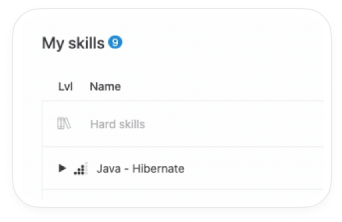Five tips for recruitment in times of uncertainty
Hiring employees can be challenging during pandemics, military conflicts, political changes, and global economic downturns. Even tech companies are facing a new hiring crisis as labor shortages make more pitfalls — and the tech sector is among those with the most stable growth. So what are tips for recruitment during a time of crisis?
As a business owner or recruiter, you have options for recruiting today’s top talent. The key is to ensure effective workforce planning, especially when you don’t know what the world, the economy, or your business might look like in one month, let alone twelve.
We’re not saying it’s easy, but there are ways you and your business can get through these tough times while scaling your team. In this article, you’ll find tips for recruitment to increase your chances of achieving your growth goals.
Focus on these points to learn how companies are dealing with the fresh crisis in hiring.
World events that caused the labor market crisis
The past few years have been highly turbulent for the labor market.
We recently witnessed a seismic shift in the workforce due to the COVID-19 pandemic. Offices closed, and companies collapsed. Employees were fired, sent on vacation, or forced to work remotely. Entire industries, such as travel and tourism, ground to a halt, while others struggled with staffing shortages as workers went on sick leave or were forced into quarantine.
And even as the world began to fight (a little better) the spread of the virus, new shock waves hit the market. The global supply chain crisis slowed the production and transportation of goods. And as workers reassessed their working conditions, many decided it was time for a change, leaving their jobs in the Great Resignation.
The market continued to collapse even when the (Western) world was ready to open up and ease pandemic-era restrictions. As a result, employers tried returning to the office employees who enjoyed the flexibility and freedom of working from home.
Then, on February 24, 2022, Russia invaded Ukraine, leading to another currency crisis. As a result of the invasion, millions of Ukrainians had to leave their homes and their country or take up arms to defend their land. The global economy suffered from instability and further uncertainty.
As of September 2022, global inflation had increased to 7.4% year-over-year. That’s almost on par with the devastating inflation reached during the 2008 financial crisis.
All of the above have combined to lead to an economic downturn, rising interest rates, severe uncertainty, and a seemingly inevitable labor market recession.
How the crisis is affecting recruiting
Even tech companies faced a fresh hiring crisis in 2022. However, a crisis doesn’t mean hiring stops. On the contrary, when a crisis creates a surge in demand or presents a unique opportunity for your product or service, your business can expand while others struggle.
Whatever the situation in your company, the current crisis won’t necessarily change the basic principles of your hiring process. Instead, it affects the thinking of hiring managers and job candidates.
- Hiring managers. Taking a tip for recruitment, HR managers started focusing on how new employees can improve the business in the future. Their goal is to identify people who embody the desired skill set and can bring the most value to the organization.
- Job seekers. In general, job candidates are worried about the worsening of the crisis and their future. They are worried about whether it’s better to change their job or keep working in the same industry, what will change if the crisis doesn’t stop, what about the resources, whether their employer will find it necessary to reduce benefits, how their job will affect their family, and more.
Tips for recruitment: what employees look for in times of crisis
Your employees need three key things more than ever during a crisis: psychological safety, empathy and respect, and recognition.
Psychological safety
Communication between employees and their managers is critical. Employees need to feel comfortable and safe to speak up and express themselves and to challenge and question what is happening around them and in their organization.
“Company cultures don’t start out toxic. They get that way when managers stop having the conversations that make people feel seen, heard, appreciated, and invested in.” — John Baird and Edward Sullivan in their book “How to protect your team from a toxic work culture”
People are ten times more likely to quit their job if they experience a toxic work culture. In addition, three in four people say their manager is the most stressful part of their job. A recent study by HRForecast on quiet quitting found that managers who balance different team members’ needs and achieve results are more effective leaders. So one of our recruitment tips is to look out for the team’s well-being to attract talent and build a long-lasting relationship.
Check out our guide to combatting quiet quitting
Get a guide to quiet quitting to discover all you need to know about key trends in workplace culture, tips to combat quiet quitting, and the role of learning and development.
Empathy and respect
The present situation has shown us that:
- We are never fully prepared for a crisis.
- The global crisis affects different groups differently, so they need various solutions to ensure equal rights and opportunities.
Vinay Kapoor, Head of D&I at BNP Paribas in the Americas, said “In a time of crisis, when people feel insecure and fearful, inclusive behavior is even more important.” It’s the practice of having an atmosphere of acceptance, value, and respect for other people that they need to be a part of for growth, community, and productivity.
Organizations that continue to invest in D&I (diversity and inclusion) will have a more remarkable ability to overcome adversity and recover from crisis, maximizing their potential for innovation and creativity with the ability to grow and renew while attracting new and diverse talent. Pro-tip tip for recruitment: Employees sustainability is higher in inclusive organizations and contributes significantly to society’s overall cohesion.
Support and appreciation
According to various studies and surveys, working from home will likely continue.
- A Gartner survey revealed in 2020 that 74% of CFOs plan to permanently shift some of their workforces to remote work.
- Meanwhile, Buffer shared that 98% of remote workers would like to continue working remotely for the rest of their careers, at least some of the time.
It would be best to offer your employees the right support to navigate their new day-to-day work and keep them engaged by recognizing their effort. Appreciation is perhaps more meaningful during tough times than when a business runs as usual, and this tip for recruitment will help you attract the best talents.
Summing up: five tips for recruitment during times of uncertainty
We asked ChatGPT what exactly workers look for most during a crisis. Employees want to feel supported and valued by their employers. Clear communication, flexibility, and empathy can help employers build trust and maintain a positive work environment, even under challenging circumstances.
Adapting how you hire to the current climate increases your chances of finding and attracting the right candidates, even in these uncertain times. Below, we offer tips for recruitment and describe how to implement them.
Strengthen your brand
Talent acquisition is one of the core tips for recruitment, and it starts with building a brand that (potential) employees trust, admire, and want to work with. Of course, it’s always been that way, but having a strong employer brand is now more important than ever. Start building a credible employer brand to convince existing and potential employees that your company matters. After doing that:
- Optimize your job ads to showcase what you have to offer
- Offer benefits, flexible work arrangements such as remote and hybrid work, and additional incentives to attract skilled talent
- Highlight your employer’s value proposition.
Evaluate your open positions and your company from the perspective of each candidate
Seek out potential candidates and contact them directly. But before doing so, consider how each candidate will most likely respond to an opportunity at your company.
- Are they working now?
- If not, is it because they work in an industry affected by the crisis?
- If so, how long have they been with their company, and how has their career progressed at this organization?
- How stable is their current company or industry compared to yours?
- Does your position mean a demotion, lateral transfer, or promotion for them?
These tips for recruitment will help you set the tone and strategy for your initial communications and increase your chances of getting candidates interested.
Try active sourcing
Active sourcing means actively searching for promising candidates before there is a need to fill a position. It includes connecting recruiters with prospective candidates at university events, recruitment fairs, networking seminars, and other venues and maintaining relationships with these potential employees while preparing for an open position. By developing these relationships over time, employers can quickly fill vacancies and choose from a high level of pre-screened candidates.
Proactive sourcing saves time in the long run and will likely result in better-quality candidates. Existing connections between employer and candidate also mean that recruiters spend less time reviewing resumes or interviewing because they already know their applicants.
Offer upskilling and reskilling benefits
These tips for recruitment may seem trivial, but not only developing opportunities for your employees but also showing them to candidates plays a significant role in finding the best talents. Learning and upskilling can enhance a candidate’s qualifications and increase their confidence, positively impacting their decision to apply for a job. In addition, being engaged in learning and upskilling may be more motivated to seek out new opportunities and apply for jobs that allow them to continue developing their skills.
Moreover, happy employees will share with friends and family how their company invests in their future and supports their development. Thus, they are more likely to leave great reviews on sites like Glassdoor, helping you attract and retain new talent faster.
Invest in recruitment automation tools
With the development of technology, investment in new solutions becomes a necessity. Companies that have so far developed too slowly and have yet to implement automation in their recruitment systems may lose many candidates to more technologically advanced competitors.
Consider implementing software in your organization that will help automate recruitment:
- With smartData you can process, compare, and integrate your internal data with a global external data pool to be one step ahead of the competition.
- With smartPlan, you can handle critical HR tasks such as translating business objectives to workforce demand, identifying current and future skills gaps, and developing a hiring strategy.
- With the smartHire feature, you can hire new employees knowing time-to-hire rates, salary ranges in particular areas, and more.
Recruiting during a crisis can be challenging, but it also presents opportunities for companies to adapt and innovate in their approach to talent acquisition. By prioritizing these strategies, companies can navigate uncertainty and continue to attract and retain top talent. We hope these tips for recruitment will help you deal with challenges in future crises.
Stay up to date with our newsletter
Every month, we’ll send you a curated newsletter with our updates and the latest industry news.



























 info@hrforecast.de
info@hrforecast.de
 +49 89 215384810
+49 89 215384810






